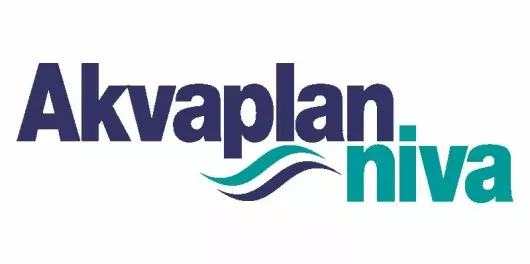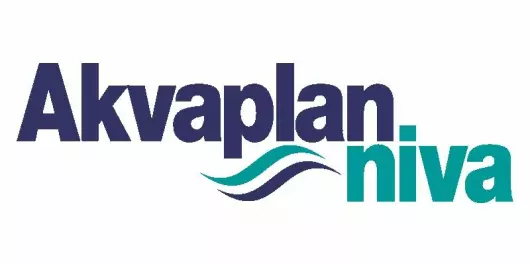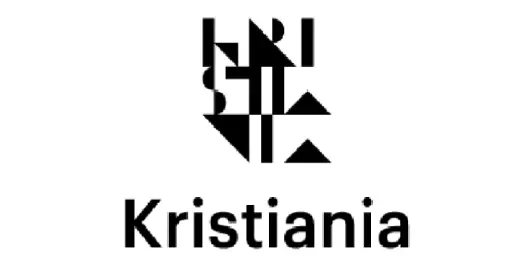Ledig stilling på Universitetet i Oslo
Blindern og Urbygningen (Foto: Wikimedia og Colourbox)
Phd research fellow in statistics / machine learning
Deadline: 09.10.2021
Universitetet i Oslo
The University of Oslo is Norway’s oldest and highest ranked educational and research institution, with 28 000 students and 7000 employees. With its broad range of academic disciplines and internationally recognised research communities, UiO is an important contributor to society.
The Department of Psychology is one of seven units of the Faculty of Social Sciences, and has 75 permanent and 70 temporary members of scientific staff. Degrees are offered at bachelor and master level, plus a clinical training programme, and the PhD programme has 140 students.
Faculty of Social Sciences, Department of Psychology, Center for Lifespan Changes in Brain and Cognition (LCBC)
The position
A 3-4 year position as Ph.D. Fellow is available at the Center for Lifespan Changes in Brain and Cognition (LCBC), at the Department of Psychology, University of Oslo. The position will fit a talented candidate highly interested in developing machine learning methods for predicting risk and progression of brain disease, and making such methods practically applicable in clinical settings.
The research center
The goal of LCBC is to understand brain and cognitive changes and how to optimize them through the entire lifespan. LCBC is an active multidisciplinary research center, with a staff of about 25 full-time positions, including six faculty professors/researchers, several PostDocs and Ph.D. candidates, several programmers/engineers and full-time research assistans, extensive supporting personnel and several affiliated international researchers. LCBC has excellent research infrastructure, including access to a 3T Siemens Prisma, PET and EEG, and neuropsychological and somatic test facilities. English is the inter-collegial language of the center. LCBC coordinates a large H2020 EU-project and has obtained four grants from the European Research Council (ERC). Further funding comes from the Research Council of Norway, the National Health Association, the Thon Foundation, and the University of Oslo. The group was in 2015 appointed status as “world-leading” as one of five at the University of Oslo, with special funding. More information can be found on www.oslobrains.no.
More about the position
Datasets containing information from a large number of sources, including detailed magnetic resonance images (MRIs) of the brain, genetic information, cognitive test results, and sociodemographic variables have recently become available for a large number of individuals (N>50000), offering the potential to train accurate models for predicting risk and progression of brain related diseases (e.g., accelerated cognitive decline, Alzheimer’s). If successful, such models would be highly valuable, as early detection enables preventive measures to be applied at an earlier stage than possible with current diagnostic tools. However, the development of prediction methods which optimally use all available data is abound with statistical and computational challenges. Furthermore, making accurate personalized predictions likely requires fine-tuning the models to the characteristics of the target population, as well as proper quantification of uncertainty.
The successful applicant will work towards this goal by extending state-of-the-art machine learning methods to enable integration of MRI, genetics, and other relevant information for making personalized predictions of disease risk. The Ph.D. student will likely use tools from machine learning (e.g., deep learning, probabilistic ML, transfer learning), combined with statistical methods for analysis of longitudinal data. The work will require programming in a high-level language such as Python or R, and the use of deep learning toolkits such as TensorFlow. Access will be given to necessary GPU computing resources. A major focus for the candidate will also be scientific dissemination, i.e., writing and publication.
The main purpose of the fellowship is research training leading to the successful completion of a Ph.D. degree. Hence, the research fellow must take part in the Department’s approved Ph.D. program. The fellowship is for a period of three years. A 4th year can be considered with the addition of 25% teaching requirement, depending on the competence of the applicant and the needs of the center.
The Ph.D. fellow is expected to collaborate extensively with other researchers at the center. The position will offer opportunities to develop high-quality research competence, to work with leading experts in the field, and take part in the group’s extensive network of international collaborations. In particular, the candidate will work closely with the “Predict-AD” project led by Prof. Anders M. Fjell at LCBC and the Computational Radiology & Artificial Intelligence (CRAI) Research Group at Oslo University Hospital, which is a formal collaborator of LCBC. The candidate will also have good opportunities to interact with other groups at the University of Oslo working with personalized medicine, including BigInsight and the Oslo Centre for Biostatistics and Epidemiology.
Qualification requirements
- Applicants must hold a Master’s degree or equivalent in statistics, machine learning, or a closely related field. Candidates finishing their Master’s degree in the fall of 2021 are welcome to apply. Appointment is dependent on the Master`s degree being approved.
- Applicants must be familiar with at least one high-level programming language such as MATLAB, Python, or R.
- Applicants must be highly motivated to develop methods of practical value in clinical settings.
- Familiarity and/or expertise in deep learning methodology (e.g., convolutional neural nets, transfer learning, backpropagation), and software (e.g., Keras, TensorFlow) constitutes an advantage, but not a requirement.
- Experience with image analysis, neuroimaging data, and cognitive neuroscience will constitute advantages, but not requirements.
- Excellent English communication skills, orally and in writing.
In assessing applications, particular emphasis will be placed upon the quality of the candidate's academic qualifications. Interviews with selected candidates may be arranged where the applicant's personal prerequisites, interest in the topic and, cooperative skills will be emphasized.
We offer
- We offer Salary NOK 491 200 - 534 400 per annum depending on experience and qualifications.
- Professional development in a stimulating academic environment.
- Favorable pension and social welfare benefits.
How to apply
The application must include
- Letter of application, 1-2 pages, explaining the motivation for applying.
- Curriculum Vitae summarizing education, positions, and academic work
- Copies of educational certificates, publications/academic work (if any) that the applicant wishes to be considered by the evaluation committee.
- Names and contact details of at least two references (name, relation to candidate, e-mail and telephone number).
- International applicants are advised to attach an explanation of their University’s grading system. All documents should be in Scandinavian or English.
- The application with attachments must be delivered in our electronic recruiting system.
The application with attachments must be delivered in our electronic recruiting system, please follow the link “apply for this job”. Foreign applicants are advised to attach an explanation of their University's grading system. Please note that all documents should be in English (or a Scandinavian language).
When evaluating the application, emphasis will be given to the eventuelt “project description” and the applicant’s academic and personal prerequisites to carry out the project. Applicants may be called in for an interview.
Formal regulations
Please see the guidelines and regulations for appointments to Research Fellowships at the University of Oslo.
No one can be appointed for more than one PhD Research Fellowship period at the University of Oslo.
According to the Norwegian Freedom of Information Act (Offentleglova) information about the applicant may be included in the public applicant list, also in cases where the applicant has requested non-disclosure.
The appointment may be shortened/given a more limited scope within the framework of the applicable guidelines on account of any previous employment in academic positions.
The University of Oslo has an agreement for all employees, aiming to secure rights to research results etc.
Inclusion and diversity are a strength. The University of Oslo has a personnel policy objective of achieving a balanced gender composition. We also want to have employees with diverse expertise, combinations of subjects, life experience and perspectives. We will make adjustments for employees who require this.
If there are qualified applicants with special needs, gaps in their CVs or immigrant backgrounds, we will invite at least one applicant in each of these groups to an interview.
Contact information
- Associate Prof. Øystein Sørensen (oystein.sorensen@psykologi.uio.no)
- Prof. Kristine B Walhovd (k.b.walhovd@psykologi.uio.no).
- Senior consultant Silje Forsland (silje.forsland@psykologi.uio.no)
Apply for position














